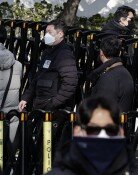Gov’t order to suspend steel mills was hasty decision
Gov’t order to suspend steel mills was hasty decision
Posted June. 03, 2019 07:39,
Updated June. 03, 2019 07:39
South Chungcheong Province has recently ordered Hyundai Steel to stop the operation of its Dangjin Steel Mill for 10 days starting from July 15, citing the result of the local government’s inspection that the steel mill, in the process of repairing a blast furnace, discharged pollutants by opening a breather (safety valve) not equipped with facilities to prevent air pollution. Earlier, Sough Jeolla Province and North Gyeongsang Province had also directed POSCO to suspend the operation of its steel mills in Pohang and Gwangyang for 10 days for the same reason.
If it is true that large steelmakers, which have stressed the importance of upholding social responsibility, have illicitly emitted pollutants, they must be held accountable for the wrongdoings. However, the latest administrative measure is not based on clear evidence, and thus is a hasty, excessive decision that does not take into account its potential impact on the industry.
South Korea’s steel mills have routinely discharged high-pressure gas by opening a breather while repairing a furnace every two months. This is also the case for steelworks in Europe, Japan, and China, and the World Steel Association has assessed that there is no problem with such a way. Yet, the environment ministry suddenly took issue with the opening of a breather. The local governments hastily ordered steelmakers to stop the work even though there hasn’t been a study to measure which pollutants are discharged to what extent through an opened breather. The environment authorities belatedly conducted an examination using a drone, but South Chungcheong Province has hastened to execute the administrative order, turning down the firm’s demands to hold a hearing and gather evidence.
A suspension of operation at steel mills would deal a huge blow to the country’s steel industry. Steel production facilities should be operated around the clock to prevent molten metal in a furnace from hardening. After ten days of dormancy, it could take up to six months to rerun the facilities, which would affect the supply and price of steel products. Automobile, shipbuilding, construction, and other related industries are also likely to take a hit.
Before taking issue with steel mills’ discharge of chemicals, what should have been first done is to thoroughly examine the exact amount of gas emitted and whether they are toxic or not. Resorting to an extreme measure without going through due procedures is only seen as the government’s attempt to blame steelmakers for the worsening fine dust situation. For now, steelmakers have bought some time by filing for an injunction and an administrative litigation against the local governments. The environment authorities and steel industry should now commission a reliable institution to inspect the issues of a breather and accordingly come up with measures.







